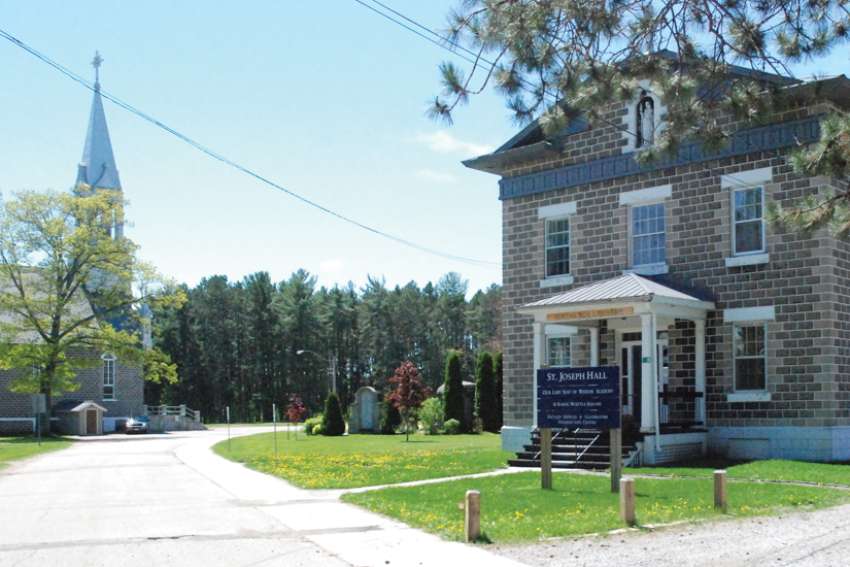The conclusions of the report, which The Catholic Register received March 30, said Uwe Lieflander, a German national who taught at the school from 2007 to 2017, engaged in abuse that was “psychological and emotional” while the student — who is referred to as Witness A in the report — attended the small Catholic post-secondary institute. The abuse became sexual when Witness A, a female, was no longer a part of the SWC community, it said. The report also supports claims that misconduct did take place on school premises.
“We regret that this terrible thing happened,” said interim school president Christine Schintgen in an interview with The Catholic Register. “We really want to do what we can to ensure that this doesn’t happen again.”
The formal third-party investigation into the allegations were launched in December 2021 and were conducted by Elizabeth Grace, partner in the law firm Lerners LLP. There is an outstanding arrest warrant for Lieflander issued by the Ottawa Police in January 2019. He is thought to be residing in Germany at this time, and posted to a YouTube channel as recently as February of this year. He will be arrested if he returns to Canada.
The report concluded that Our Lady Seat of Wisdom’s oversight and prevention measures in place in relation to Lieflander to deter, detect and stop misconduct by a faculty member against students were inadequate at the relevant times he was teaching at the school. It was also confirmed that Lieflander was found to be in violation of college Conduct Policy for Faculty incorporated into his contract, specifically as it pertains to his “parent-like relationship” with Witness A during her year as a full-time student from 2014 to 2015.
“The subsequent sexualized activity that he engaged in with Witness A, on college premises after she ceased being a student of SWC, represented a further contravention by him of both the Conduct Policy for Faculty and the SWC’s Anti-Abuse, Violence and Harassment Policy,” reads the report.
The report confirms that the allegations were first made known to a member of staff by Witness A in early April 2017. In early May 2017, after receiving Witness A’s permission to do so, the employee disclosed the inappropriate sexualized relationship between Lieflander and Witness A, on a confidential basis, to SWC’s then president and one of its board members. It has been concluded that those in authority at SWC responded appropriately upon receipt of the information. The report concludes there were “red flags” indicative of a potential problem between Lieflander and Witness A which were “not heeded by persons in authority at SWC.”
The school has committed to move forward in a trauma-informed manner and has committed to covering up to $150 per session for up to seven sessions of counselling for witnesses and survivors who come forward. The choice of therapist will be the individual’s.
Schintgen confirmed the school has reached out to Witness A directly to express care and inform her of their desire to provide resources for counselling.
“We wish Witness A well,” said Schintgen. “We hope that she would find a path of healing and that things will be well for her and we want to be there to help her in any way we can.”
In response to the allegation, in 2018 the school introduced a mandatory talk for students on sexual consent and maintaining personal boundaries. In the area of formation of staff and faculty, the school introduced regular training to recognize healthy and appropriate boundaries with students and guidelines for interacting in a friendly but professional manner. The school has also strengthened policies and procedures around reporting grievances which it is working to further enhance.
The school also launched a sexual violence policy working group that is currently working to develop a self-standing sexual violence policy.
“We’ve come to identify more clearly what some of the helps could be to foster a safer environment for our students,” said Schintgen. “When you come to see clearly how someone has been damaged by an experience that happened at the college, it really hits home how much you don’t want anyone to experience something negative like that. That’s always been our aim but you realize (even more) how much you want to strive for a positive experience for students. To hold up the ideal that we’ve always sometimes unconsciously striven for and make it more of a conscious focus. To really take a hard look at what we can still do to make this place safer for students and all the members of our community.”


